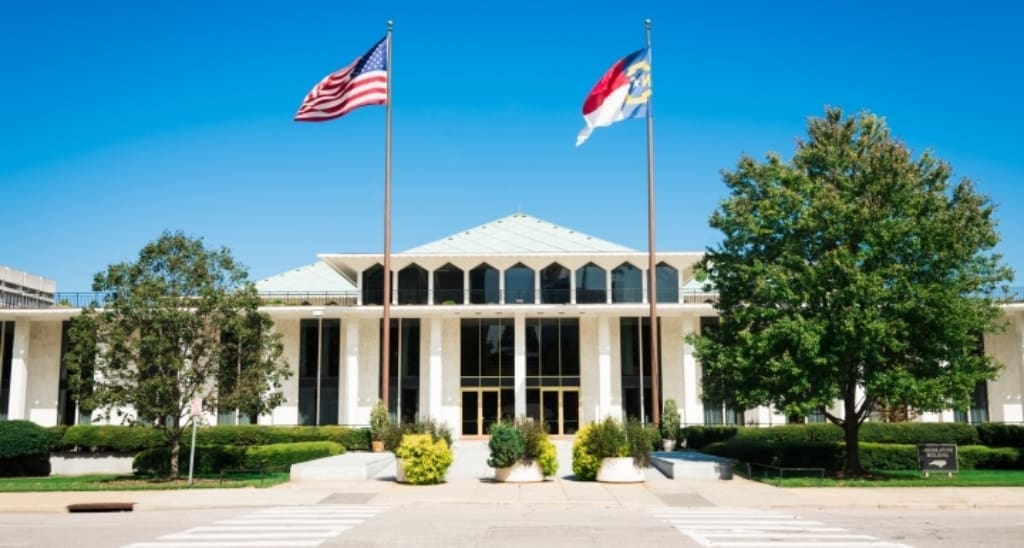
Around the State
Governor Unveils FY 2021-2023 Budget Proposal (FY21-23)
Wednesday afternoon (3/24) Governor Roy Cooper unveiled his budget proposal for Fiscal Years 2021-2023. While Cooper’s proposal includes education and healthcare resources to help North Carolinians recover from the COVID-19 pandemic, the amount of housing resources proposed falls far short of what is needed to truly meet the moment’s housing needs.
The following are notable housing impacts:
- Increase Housing Trust Fund to $15.4 million per year, doubling prior year’s allocations
- No Workforce Housing Loan Program (WLHP) funding
- Creation of a “Housing Coordination Office” within DHHS and a “Housing & Community Development Office” at the Department of Commerce
- Removal of a previously mentioned General Obligation bond for affordable housing
While an increase in the Housing Trust Fund is welcome, the proposal falls short of the Coalition’s ask of $20 million. Regarding WHLP, the program is a non-recurring budget item that must be appropriated every biennium. In 2020, $20 million in WHLP funds were made available through individual spending bills, despite a budget not being enacted during the 2019 legislative session. Without WHLP funds to run alongside Low-Income Housing Tax Credits (LIHTC) in 2021, the state reduces its ability to leverage housing credits for increased development capacity.
The prospect of new housing-focused offices within DHHS and Commerce are exciting and will surely help to increase the state’s ability to respond to critical housing needs quickly, efficiently, and in a coordinated manner. The Governor also proposes to reinstate NC’s state Earned Income Tax Credit (EITC), which while not directly related to housing, will improve the financial security of households across the state, thereby improving housing stability for many.
Governor Cooper also proposes placing a $4.7 billion General Obligation bond on the November 2021 ballot. The bond would address “infrastructure” needs in public education, health and safety projects, the UNC system, and parks/historic sites. The bond proposal does not include any funds for affordable housing, despite a previous announcement by the Governor in August 2020 calling for a $500 million housing bond.
The General Assembly will soon weigh-in with their budget recommendations. The Coalition will continue to advocate for the following budget priorities:
-
- $60 M to Foreclosure Prevention & Housing Counseling – Homeowners are struggling with housing costs as well. Housing counselors are key to assisting homeowners through the maze of loan modifications, forbearances, and mortgage options. The state should be preparing its systems and network of housing counselors in order to quickly implement potential federal funding for mortgage assistance and related services.
- $35 M to Workforce Housing Loan Program – The continued construction and preservation of affordable housing helps to ensure that access to affordable housing is improved. Construction activity is also a key driver of economic stability.
- $20 M to Housing Trust Fund – The Trust Fund is a flexible source of funds that can allow for tailored solutions to local housing needs. Funds should be increased during a time of crisis.
- $20 M to CDBG to Neighborhood Revitalization Program – CDBG funds are one of the primary sources for addressing rural housing needs. People in rural communities face similar housing challenges to their urban counterparts.
- $500 M Statewide Affordable Housing Bond – With the devastating need for affordable housing and growing housing precarity, the state must make substantial investment in housing in order to make substantial gains that meet the scale of the challenge.
General Assembly Update
The General Assembly continues to work on additional COVID-19 related legislation, including discussions around how to allocate federal funding that North Carolina is expected to receive from the recently enacted American Rescue Plan. North Carolina expects to receive over $5 billion for a variety of pandemic responses and recovery efforts.
As of this writing, it is not yet known how much will be received for specific programs, such as the Treasury Department Emergency Rental Assistance Program (TERAP) or the Homeownership Assistance Fund. The U.S. Treasury Department is expected to make those announcements along with guidance regarding the implementation of those funds in the near future. Advocates are calling on the GA to appropriate those funds quickly and to adhere as closely as possible to the Treasury Department’s guidance in order to avoid the experience of House Bill 196 and its negative impact on the HOPE Program (statewide rental assistance). See below for more information.
The General Assembly is also working towards their budget proposals. For 2021 the process of developing a state budget proposal will begin in the Senate chamber. The Senate is expected to release their proposal in coming weeks. In light of the Governor’s proposal and its lack of housing resources, it is critical for advocates to raise the issue of housing with state legislators. Please call on them to increase the Trust Fund and to fund the WHLP program, in particular. Please consider joining the Coalition’s Advocates Circle to join our press for housing resources that meet the scale of the needs.
HOPE Program
The HOPE program remains closed to new applicants. NCORR continues to process approved applications and disburse payments. As of last week, NCORR reports that they are nearing completion with approximately $142 million committed (applications either approved for funds and awaiting disbursement or assistance already paid). Reaction to HB 196 has been strong with many groups contacting General Assembly members about the potential negative impacts that will be felt by everyone from tenants to landlords to local governments.
NCORR reports that legislators appear willing to consider technical changes to address those impacts. Because the bill is now law, any changes to the HOPE program to remove the barriers imposed by HB 196 will have to come through additional legislation. Legislators reportedly are discussing including those changes in upcoming bills allocating the remaining December 2020 relief funds and the new ARP monies.
With the potential for additional changes to the rental assistance program, NCORR is keeping the program closed to new applicants until the matter is resolved and final technical changes are in place. That being said, it is likely that the program will remain closed for another 2-3 weeks. While it is positive to see that the GA is considering undoing the potential harm from HB 196, each day that rental assistance is unavailable, the closer struggling households come to losing their housing. Even more concerning with the potential expiration of the CDC eviction moratorium on March 31st.
National
CDC Eviction Order “Likely” to be Extended
Across the country housing and tenant advocates nervously await word from the CDC or the White House regarding the upcoming expiration of the CDC eviction order on March 31st. At the state level, this will certainly inform the future actions of the Governor’s office and courthouses across the state regarding evictions. The CDC has submitted documentation for regulatory review at the Office of Budget & Management (OMB), signaling that changes may be coming to the moratorium. National Low Income Housing Coalition President Diane Yentel says that it is “likely” that the order will be extended. Aside from the duration, it is unclear if there will be additional changes to the moratorium. National advocates are hoping there will also be changes to strengthen and enforce the order. As soon as anything concrete is known, the Coalition will share that information widely.
New FAQ on Rental Assistance
Last week, the Treasury department released additional guidance on the administration of ERA funds coming out of the December 2020 COVID-19 relief package. This builds on the guidance released on Feb 22 (under the new leadership of Treasury Secretary Janet Yellen). Some highlights from this latest guidance:
- Adds security deposits to the list of eligible rental costs. The FAQ also clarifies that application fees or screening costs can also be covered.
- Clarifies that hotel & motel stays for temporarily displaced persons can be covered by rental assistance. The guidance does stress that other federal assistance that explicitly covers hotel/motels be used first, such as ESG & FEMA funds. Incidental lodging fees, such as cleaning fees, cannot be covered.
- Clarifies that people whose tenancy is in rent-to-own agreements (who are not named on recorded title documents) may receive assistance. Also clarifies that tenants paying to rent manufactured housing and/or paying associated lot rents can receive rental assistance.
Resources & Reports
Enterprise Community Partners – Policy Actions for Racial Equity
Bloomberg/Redfin – Maps Reveal Redlined Areas Face Higher Flood Risks
Housing Policy Debate – Evictions: The Comparative Analysis Problem
National Low Income Housing Coalition – The Gap: A Shortage of Affordable Rental Homes Data for North Carolina
Harvard University, Joint Center for Housing Studies – The Impact of COVID-19 on Small Landlords: Survey Evidence from Albany and Rochester, New York
ChildTrends – Racism and Discrimination Contribute to Housing Instability for Black Families During the Pandemic
Links to guidance on COVID-19 vaccines for people experiencing homelessness and homeless service provider staff:








